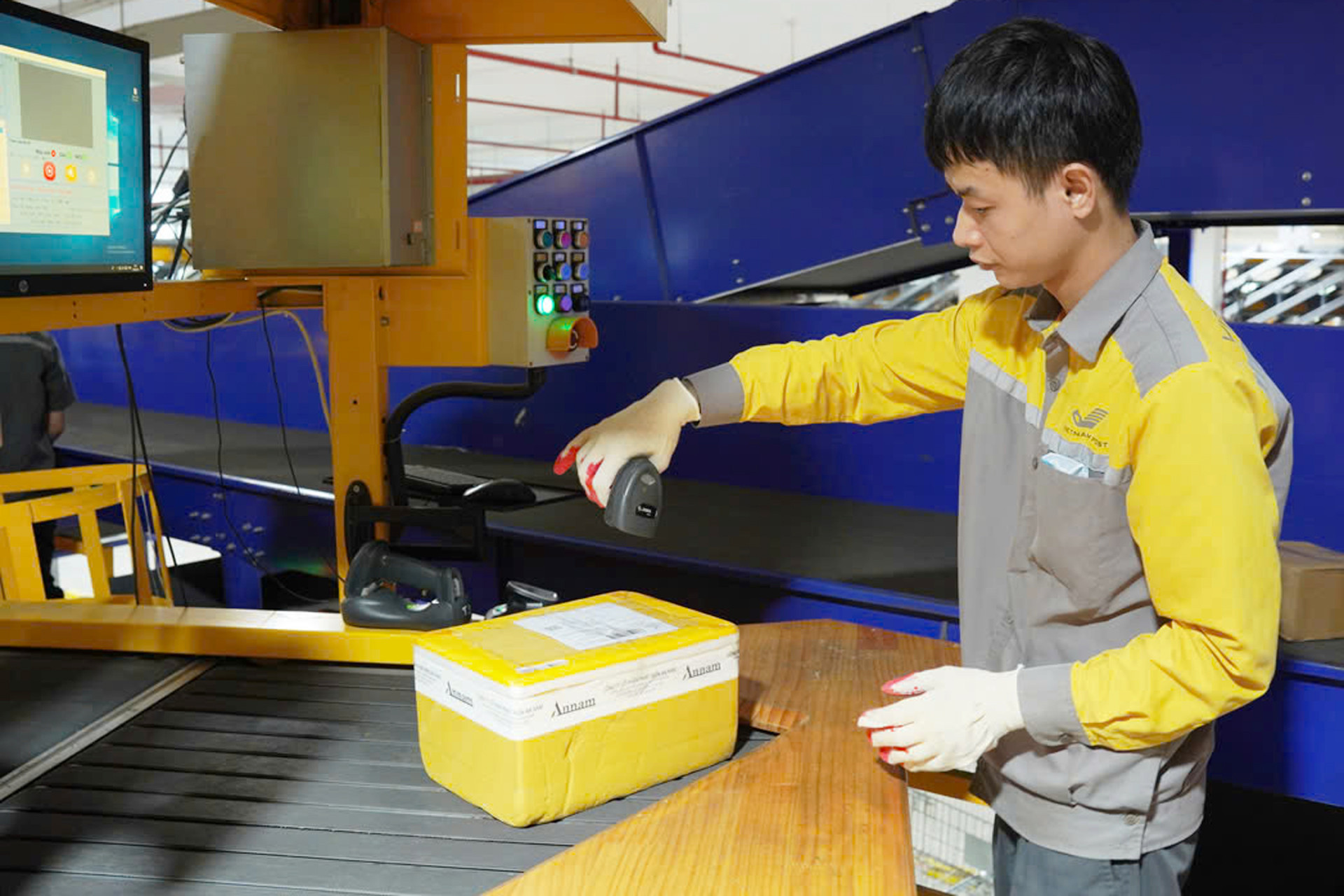
A logistics worker manages inventory at a shipping hub in Vietnam. (Photo: Trong Dat)
Vietnam’s e-commerce market is growing at an unprecedented pace, with sales expected to hit VND 387.5 trillion ($15.3 billion) in 2025, representing a 21.5% revenue increase from 2024, according to a Metric report on the retail sector.
In 2024, e-commerce sales growth was 4.2 times faster than the overall growth of retail and consumer services, reflecting a strong shift towards online shopping in Vietnam.
As competition intensifies, businesses are turning to AI, big data, and automation to gain an edge in Vietnam’s e-commerce market.
Key trends driving this transformation include:
AI-powered personalization to enhance customer experience
Real-time inventory tracking using RFID technology
Automated supply chain management for faster deliveries
Social commerce & shoppertainment through livestream shopping
Social commerce, which integrates entertainment with shopping, is expected to play a major role in how Vietnamese consumers shop online.
Affordable products dominate Vietnam’s e-commerce landscape

AI-driven automation is reshaping Vietnam’s digital economy. (Photo: VNP)
In 2025, low-cost products under VND 200,000 ($8), along with essential goods such as food, beverages, diapers, and baby formula, will continue to dominate e-commerce sales.
Retailers are now faced with the challenge of balancing affordability with quality and customer experience. To achieve this, investment in research and development (R&D), AI-driven market analysis, and logistics optimization will be critical.
Globally, consumer satisfaction with both online and in-store shopping is declining.
According to Zebra Technologies’ Global Shopping Study, in 2024:
Only 79% of online shoppers were satisfied (down from 85% in 2023).
In Asia-Pacific, satisfaction rates dropped to 75% for online shopping and 78% for in-store shopping.
This trend is prompting 79% of retailers in the Asia-Pacific region to increase investments in technology by 2025.
Retailers are leveraging AI and smart automation to improve efficiency and customer satisfaction:
RFID tracking ensures real-time inventory accuracy.
AI-driven demand forecasting helps optimize stock levels.
Automated fulfillment centers speed up order processing.
A Zebra Technologies study found that 41% of retailers in Asia-Pacific believe Generative AI (GenAI) will revolutionize inventory management and demand forecasting.
2025 will not only see an increase in e-commerce sales but also a fundamental shift in how businesses operate.
By embracing AI-driven insights, real-time automation, and omnichannel retail strategies, Vietnamese e-commerce is set to become more efficient, competitive, and customer-centric.
This transformation will be a key driver of Vietnam’s digital economy, further integrating technology, logistics, and consumer behavior into a seamless shopping experience.
Trong Dat








